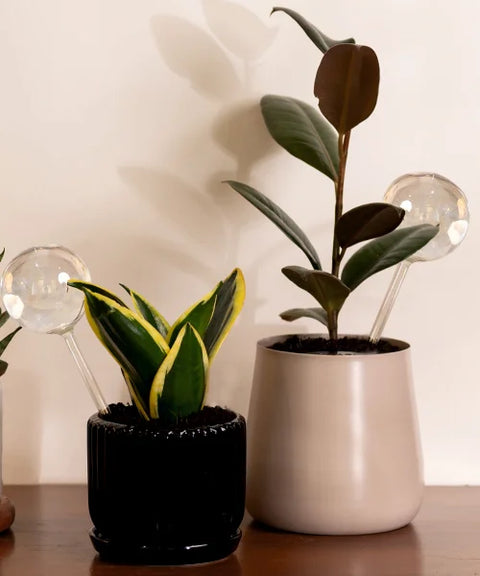About
Syngonium Berryallusion
The Syngonium Berryallusion, also known as the arrowhead plant, is a beautiful houseplant characterized by its vibrant variegated leaves. This easy-care plant is perfect for adding a touch of greenery to your home.
Origin
Native to the tropical rainforests of Central and South America.
Light
Prefers bright indirect light but can tolerate low light conditions. Avoid direct sunlight which can scorch the leaves.

Water
Water when the top inch of soil feels dry. The Syngonium prefers evenly moist soil but is prone to root rot if overwatered.
Humidity
Thrives in average household humidity but appreciates occasional misting for optimal growth.
The Syngonium Berryallusion is known for its unique ability to change leaf shapes as it matures, starting as arrow-shaped and evolving into a more lobed form. This fascinating transformation makes it one of the most visually interesting houseplants
Placement
The Syngonium Berryallusion adds a touch of elegance and life to any indoor space. Here’s where to place it
Enhances the decor with its colorful leaves and improves air quality. Position it near a window with indirect light.
Promotes a calming atmosphere and reduces stress. The presence of a Syngonium can create a more serene workspace.
Purifies the air promoting a restful sleep environment. A Syngonium in the bedroom helps create a calming atmosphere.
Frequently Asked Questions
The ideal temperature is between 60°F to 80°F (16°C to 27°C). It prefers warm stable conditions.
Water when the top inch of soil feels dry adjusting based on light exposure and indoor climate.
Prefers bright indirect light but can tolerate low light. Avoid direct sunlight to prevent leaf burn.
Position it in a bright indirect light area such as the living room or office.
Regularly trim off any dead or yellowing leaves and ensure it’s free from dust.
Keep the plant clean and inspect regularly for pests. Use insecticidal soap if necessary.
Yellow leaves typically indicate overwatering allow the soil to dry out between watering.















 Apply Discount at Checkout
Apply Discount at Checkout 

























































































